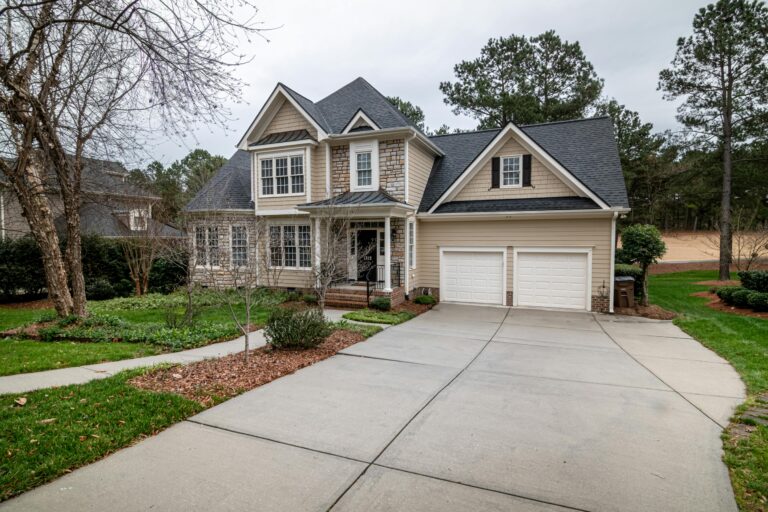
In a competitive real estate market, one of the most stressful experiences when buying a home is participating in a bidding war. This situation arises when multiple buyers compete for the same property, often pushing prices higher than expected. Bidding wars are especially common in hot markets where demand exceeds supply, such as urban centers, desirable neighborhoods, or areas with limited housing inventory. Understanding the dynamics of a bidding war, and employing the right strategies, can help you win the home of your dreams without overextending yourself financially. This article will explore the strategies you can use to navigate a bidding war successfully.
Understanding a Bidding War
A bidding war occurs when multiple buyers are interested in the same property, and each attempts to outbid the others to secure the home. In many cases, sellers may receive multiple offers, each potentially increasing in price and offering different terms, which can create a highly competitive situation for buyers. The process is especially common in seller’s markets, where inventory is low, and demand is high.
A bidding war can quickly escalate, leaving buyers feeling like they have no choice but to increase their offers, sometimes going well above the listing price. However, it’s important to remember that the highest bid doesn’t always win. Factors like the terms of the offer, the buyer’s financial readiness, and how soon the deal can close also influence the seller’s decision.
While bidding wars can be stressful, having a solid strategy in place can help you make informed decisions, avoid overpaying, and increase your chances of securing your ideal property.
Why Are Bidding Wars So Common?
Bidding wars are typically more frequent in seller’s markets, which occur when there are fewer homes available for sale than buyers are looking to purchase. The most common reasons for bidding wars include:
-
Limited Housing Inventory
When the number of homes for sale is limited, demand tends to outpace supply, creating competition among buyers. This often happens in desirable locations with good schools, proximity to workplaces, or trendy neighborhoods.
-
Low Mortgage Rates
When mortgage rates are low, many buyers are eager to take advantage of favorable financing conditions. This increases demand and often leads to bidding wars.
-
Investor Activity
In some markets, investors may also drive up demand by purchasing properties for rental income or future resale, further intensifying the competition.
-
Market Sentiment
Buyers may feel pressure to act quickly, especially if they perceive the market as competitive or fear missing out on a good deal. This urgency can lead to higher bids and escalating offers.
Strategies for Winning a Bidding War
Participating in a bidding war doesn’t have to mean overpaying or stretching beyond your financial comfort zone. With the right strategies, you can position yourself as a strong buyer and increase your chances of success without compromising your budget.
-
Get Pre-Approved for a Mortgage
One of the most important steps you can take when entering a bidding war is securing a mortgage pre-approval letter. This document demonstrates to sellers that you are financially capable of purchasing their home. It signals that you have already undergone the lender’s approval process, and your financing is secure, subject to final underwriting.
Having a pre-approval letter in hand not only strengthens your offer but also shows the seller that you are serious and ready to move forward. In a competitive market, sellers are more likely to favor buyers who have taken the time to secure financing because it reduces the risk of delays or deal cancellations.
A pre-approval letter also gives you clarity on how much you can afford, allowing you to make a confident offer within your financial limits.
-
Make a Strong Initial Offer
In a bidding war, your initial offer should be competitive enough to grab the seller’s attention but still within your budget. Do your research on the home’s market value by looking at comparable properties in the area. If the property is priced below market value, there may be a chance to secure it at that price or slightly above. However, if it is listed at or above market value, it may be necessary to offer more to stand out.
Keep in mind that offering too much over the asking price may not always be necessary, depending on the situation. Sometimes, a well-structured offer with favorable terms (such as a quick closing or fewer contingencies) can make you a more attractive buyer without having to submit the highest bid.
-
Use an Escalation Clause
An escalation clause is a tool that can help you remain competitive in a bidding war without blindly overbidding. This clause automatically increases your offer if another buyer submits a higher bid, up to a specified limit. For example, if you offer $300,000 for a home and an escalation clause adds $5,000 increments, your offer could increase automatically if another buyer bids higher—up to your maximum limit.
The escalation clause can prevent you from overpaying, as you won’t offer more than what the property is worth. It also signals to the seller that you are serious about competing for the home but are conscious of your financial limits.
-
Limit Contingencies
Contingencies are clauses in the offer that protect the buyer, such as requiring a satisfactory home inspection or an appraisal that matches the purchase price. While contingencies are important, they can also make your offer less attractive in a bidding war. Sellers may prefer an offer without contingencies, as it reduces the chances of delays or the deal falling through.
If you’re comfortable with the property’s condition or feel confident in your ability to handle repairs, consider waiving the inspection contingency. Similarly, waiving the financing contingency may be a risk but could make your offer more appealing by assuring the seller that you have already secured financing.
However, be cautious when waiving contingencies, as it can expose you to certain risks. Only do so if you are certain about your financial stability and the condition of the home.
-
Increase Your Earnest Money Deposit
Earnest money is a deposit made when you submit an offer to show the seller that you are serious about purchasing the property. A larger earnest money deposit can make your offer more attractive because it demonstrates your commitment and willingness to follow through on the purchase.
Typically, earnest money ranges from 1% to 3% of the home’s purchase price. In a bidding war, offering a larger deposit—say, 5% or more—can give you an edge. If you back out of the deal without a valid reason, the earnest money is typically forfeited, which gives the seller a financial incentive to trust you as a buyer.
-
Be Flexible with Terms
Sellers often have specific needs or timelines when selling their home. By being flexible with the terms of your offer, such as the closing date or requesting the seller rent back the property for a period after the sale, you can make your offer more appealing.
If the seller needs to move quickly, offering a faster closing may sway their decision. If they need more time to relocate, offering a longer escrow period could be a benefit. Flexibility in these areas can make your offer stand out in a crowded field of buyers.
-
Write a Personal Letter
Although it’s not a guaranteed tactic, writing a personal letter to the seller can sometimes help sway their decision. In your letter, express why you love their home and how you envision making it your own. Sellers often have emotional connections to their properties, and a heartfelt letter may make them feel more comfortable choosing you as the buyer.
Be respectful and avoid being overly sentimental or too personal in your letter. Focus on why the home is a good fit for you and your family, and ensure your letter is professional and sincere.
When to Walk Away from a Bidding War
While it’s important to stay competitive in a bidding war, it’s equally crucial to know when to walk away. Overextending yourself financially or getting caught up in the excitement of the competition can lead to regret.
-
The Price Exceeds Your Budget
One of the most significant risks of a bidding war is overpaying for a property. Always know your budget and stick to it. If the bids escalate beyond what you’re comfortable paying, it’s better to walk away and look for another home.
-
The Terms are Too Risky
Waiving too many contingencies or agreeing to unfavorable terms can be dangerous. If you’re being pressured to remove key protections like an inspection or appraisal contingency, it may be a sign that the deal is not in your best interest.
-
The Competition is Too Fierce
In some cases, if the bids are escalating far beyond the home’s market value, it may be time to step back. Walking away from a bidding war can give you a sense of peace and prevent you from making a rash decision that could strain your finances.
Bidding wars are an inevitable part of competitive real estate markets, but with the right strategies, you can increase your chances of winning without exceeding your budget. By securing mortgage pre-approval, crafting a strong offer, utilizing escalation clauses, limiting contingencies, and remaining flexible with terms, you can position yourself as a serious and competitive buyer.
However, always remember to know your limits and walk away when the price or terms no longer make sense for your financial situation. Being strategic, prepared, and patient will help you navigate bidding wars successfully and ultimately secure the home you desire.





